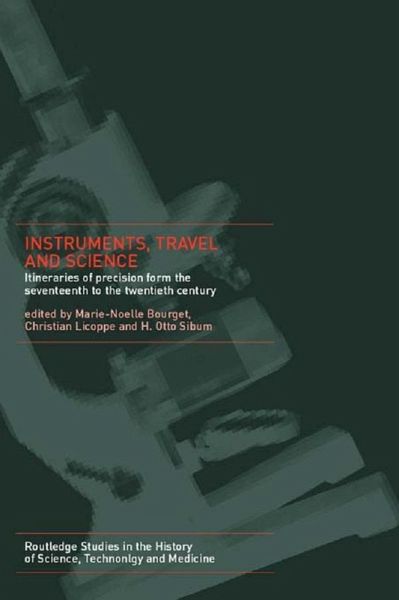
Instruments, Travel and Science (eBook, PDF)
Itineraries of Precision from the Seventeenth to the Twentieth Century
Redaktion: Bourguet, Marie Noëlle; Sibum, H. Otto; Licoppe, Christian
Versandkostenfrei!
Sofort per Download lieferbar
55,95 €
inkl. MwSt.
Weitere Ausgaben:

PAYBACK Punkte
28 °P sammeln!
We are now accustomed to conceive of science as an instrumental activity, producing numbers, measurements and graphs by means of sophisticated devices. This book investigates the historical process that gave rise to this instrumental culture. The contributors trace the displacement of instruments across the globe, the spread of practices or precision and the circulation and appropriation of skills and knowledge. Through comparative and contextual approaches, the volume confronts the tension between the local and the global, examining the process of the universalization of science. Bringing tog...
We are now accustomed to conceive of science as an instrumental activity, producing numbers, measurements and graphs by means of sophisticated devices. This book investigates the historical process that gave rise to this instrumental culture. The contributors trace the displacement of instruments across the globe, the spread of practices or precision and the circulation and appropriation of skills and knowledge. Through comparative and contextual approaches, the volume confronts the tension between the local and the global, examining the process of the universalization of science. Bringing together case studies ranging from the seventeenth to the twentieth centuries, contributors discuss French, German and British initiatives, as well as the knowledge and techniques of travellers in countries such as India, Africa, South East Asia and the Americas. Students and researchers interested in the history of science in both Western and non-Western cultures will find this book a valuable and thought-provoking read.
Dieser Download kann aus rechtlichen Gründen nur mit Rechnungsadresse in A, B, BG, CY, CZ, D, DK, EW, E, FIN, F, GR, HR, H, IRL, I, LT, L, LR, M, NL, PL, P, R, S, SLO, SK ausgeliefert werden.













